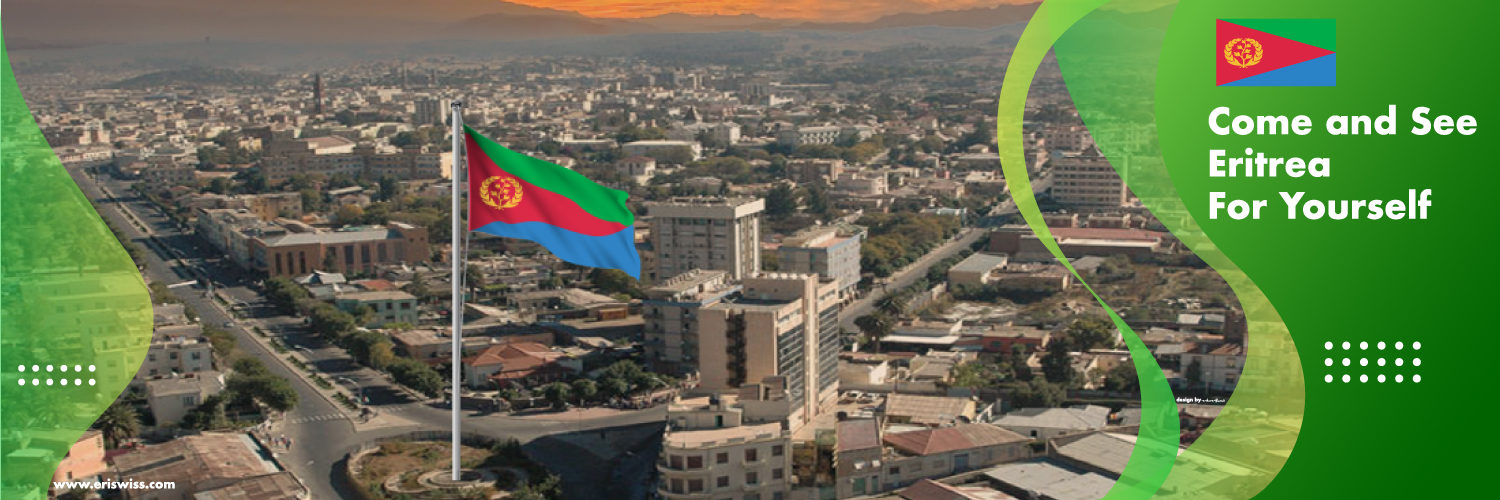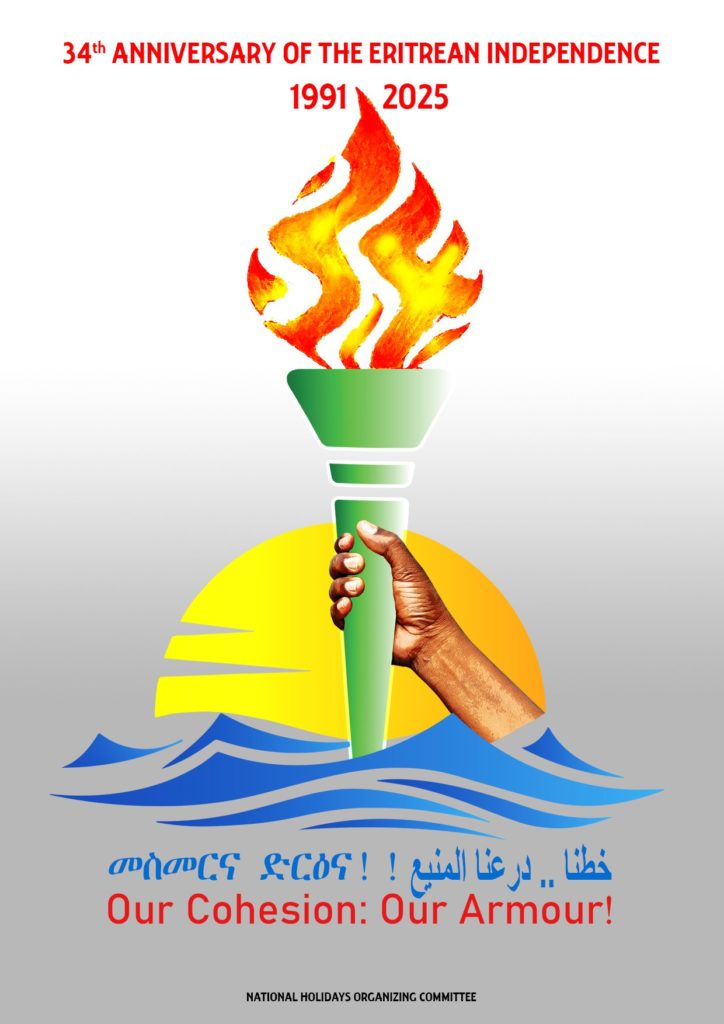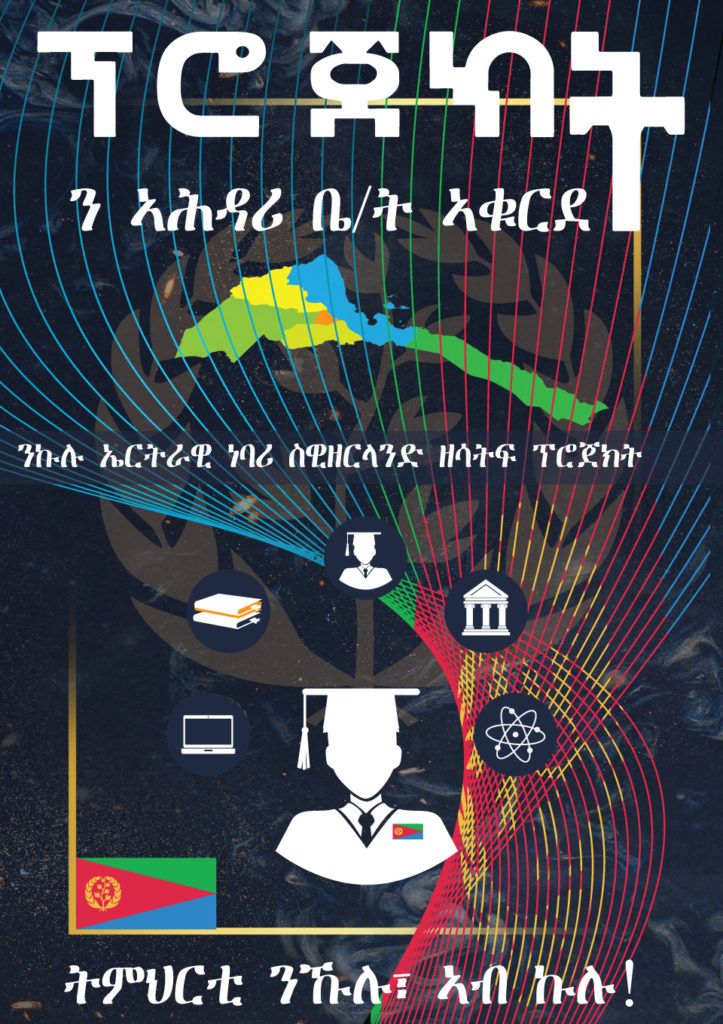Eritrea: Achievements in Sustainable Development Goals

The Sustainable Development Goals (SDGs) are 17 integrated goals that aim to bring about sustainable development in all sectors, leaving no one behind, now and into the future. They were adopted by the United Nations in 2015 as a call for collective action to end poverty and fight global problems through joint objectives and engagements. The goals are particularly designed to end poverty, hunger, AIDS, and discrimination against women in a balanced social, economic and environmental realm.
Since its independence, the story of Eritrea, a young country in sub-Saharan Africa, has been one of struggling to achieve sustainable development and equitable distribution of social services.
The Government declared its vision of development in its 1994 National Charter. “Our vision is to eliminate hunger, poverty, and illiteracy from Eritrea. Our vision is for Eritrea to preserve its identity and uniqueness, develop a commitment to family and community care, and by advancing economically, educationally, and technologically, find itself among the developed countries.”

Eritrea’s development strategy is based on the principle of self-reliance, which obviates debilitating structural dependency, to attain sustainable and balanced development. And the realization of the SDGs is based on such a course of action. Though much remains to be done, modest growth has been achieved and more are anticipated.
Eritrea has been striving to make progress in all sectors of development, and in spite of the challenges, it has made significant progress in many sectors.
According to the Millennium Development Goals (MDGs) report of 2015, Eritrea has achieved many goals and scored substantial and major progress in others. The health goals, most crucial to the other goals, are where almost all of the success stories in Eritrea are rooted. Eritrea’s success in the MDGs has been labeled exemplary in many instances, from which a lot of lessons could be learned.
Records show a swift reduction in infant mortality rates per 1,000 live births, from 9 in 1990 to 37 in 2012. Moreover, the under-five mortality rate per 1,000 live births has been reduced from 150 in 1990 to 50 in 2013. Eritrea has, therefore, achieved MDG 4 as of 2013 and exceeded its MDG 5 target of 425 per 100,000 live births.
Furthermore, considerable progress has been made in improving the overall health of the population. For instance, the Ministry of Health (MoH) reports a reduction of 82 percent in the maternal mortality ratio between 1990 and 2019.
In 2019, the proportion of births attended by skilled health personnel was approximately 71 %, an increase from 62 % in 2017. According to reports from 2020, the average annual rate of reduction for under-five mortality between 1990 and 2020 is also estimated at 4.5 %, which is among the fastest in the world.

Eritrea once again joined hands with the UN to achieve a set of sustainable development goals that were drafted in 2015. The SDGs are aimed at achieving a full-scale development and prosperity accompanied by peaceful co-existence at all levels of establishments.
Through the work started way before Eritrea’s independence, the provision of social services after independence was one of the most profound focuses of the policies of the government. Taking center stage in the development goals, the provision of equitable social services is given high priority and sufficient resources are allocated for its implementation.
The MoH reports a significant decline in the rate of most communicable diseases such as TB, HIV, Malaria, and other tropical diseases. For instance, the MoH reports an average annual rate of reduction of approximately 6 percent in TB cases while cases of malaria declined from 157 cases per 1,000 people in 1998 to 18 cases per 1,000 people in 2018 and 30 cases per 1,000 in 2020. Having achieved most of the health MDGs, the MoH has been using the MDGs’ success as a springboard to a yet exemplary march towards achieving the SDGs.
Of course, Covid-19 has been an additional challenge demanding special attention for the past three years.
Apart from health, the Government also works on improving the living standard of the society. There are various development programs that have been drafted to assist society at all levels. For example, the Saving and Micro-Credit Program and village banks have been assisting communities through the provision of small loans and extension of other forms of credit, and by opening up reliable access to financial services and socio-economic opportunities for citizens across the country, most of whom are women.
In addition, the Minimum Integrated Household Agricultural Package (MIHAP), which distributes agricultural inputs and gives other assistance to the target population, reaches out to the poor or vulnerable rural families, mostly headed by women. The program has served as an effective remedy for poverty and vulnerability.
Moreover, given the arid location of the country, environmental campaigns make a bulk of the drive to develop. Eritrea is fully committed to curbing deforestation and promoting afforestation at all levels of society. The national declaration of greening campaigns, students’ summer campaigns that focus on planting trees, and soil and water conservation schemes demonstrate Eritrea’s commitment to fighting off desertification and preserving the environment. The government has also piloted a new sustainable land management system in some areas as part of its efforts to protect the
environment.

In terms of gender equality, Eritrea has been following the right direction. Gender equality, which was affirmed in the armed struggle, continues to be respected. The National Union of Eritrean Women (NUEW), established in 1979, is the vanguard that fights for women’s rights. Eritrea is a member of some international associations against gender inequality such as the Committee on Elimination of Discrimination Against Women (CEDAW).
Ministries and other concerned bodies of the government have shared all the tasks necessary for the achievement of the SDGs. This ensures the participation of all segments of the society in the process of the development they will benefit from. The chain of command extending to the lowest segments of the society means everyone is in charge, making people part of the efforts initiated by the government and the United Nations. All of this showcases the efforts, challenges, opportunities, and success that have been harnessed toward achieving the SDGs.
In a nutshell, the Eritrean government has made clear the need for cooperation for the collective promotion of sustainable development. The government’s commitment is engraved in its National Charter. “Establishing active and comprehensive cooperation with our neighbors and throughout the world is important for our economic and cultural development. Thus, our foreign policy must promote economic and social cooperation between Eritrea and all other countries.”
A national review of the progress toward the SDGs is due to be published in September 2022. Being the first of its kind, the review reports on the work being done, the success achieved, the challenges faced and the overall dynamics of the past seven years in Eritrea’s endeavor to achieve the global goals.


